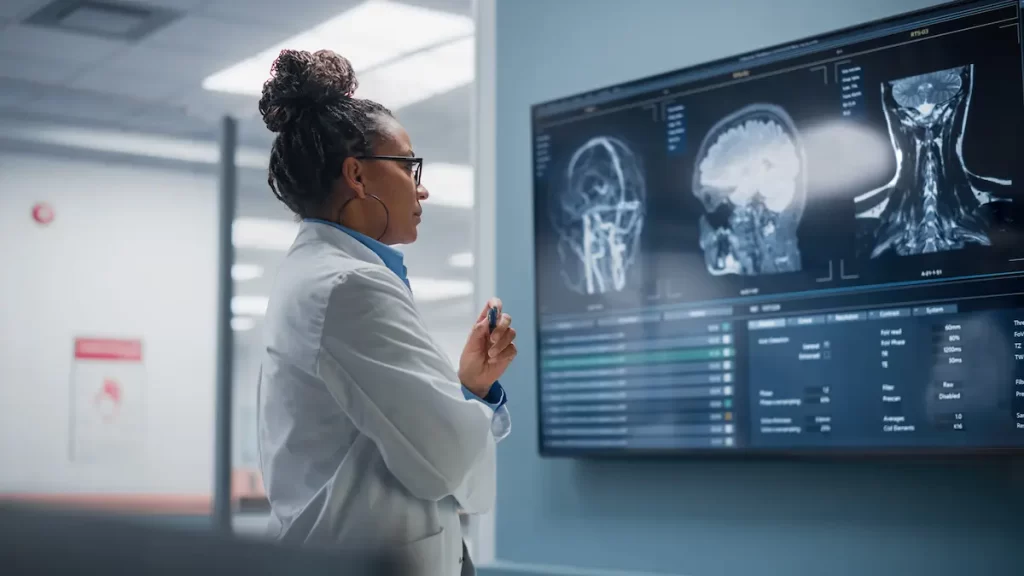Recovering from a traumatic brain injury is often a long and difficult process, but you don’t have to go through it alone.
According to the Centers for Disease Control and Prevention, TBIs account for more than 64,000 deaths with a high percentage of these deaths resulting from motor vehicle crashes. Not to mention the thousands of people who suffer from TBIs and suffer long-lasting effects. So, why is it important to think long-term following a TBI? And does it affect the compensation you receive if a negligent driver caused your condition? In this article, we will discuss the long-term effects of TBIs and what you can do to ensure you get the compensation you are legally entitled to.

Symptoms of Traumatic Brain Injury After a Car Accident
When an outside force, usually a violent blow or jolt to the head, causes damage to the brain, it is generally classified as a traumatic brain injury. This can lead to bruising, bleeding, or torn tissues in the brain. Immediate symptoms after a TBI can include:
- Loss of consciousness
- Headache
- Nausea or vomiting
- Dizziness
- Blurred vision
- Ringing in the ears
- Bad taste in the mouth
These symptoms can last for days, weeks, or even longer. They can also morph into long-term effects causing:
- Chronic headaches
- Memory problems
- Difficulty concentrating
- Mood swings
- Irritability
- Anxiety
- Depression
- Sleep disorders
What Does This Mean for Car Accident Victims?
The effects of TBIs can affect your ability to return to work or even take care of yourself. Fortunately, you can file a personal injury claim to pursue the compensation you need and deserve. When filing your claim, it is important to keep in mind the long-term effects of your brain injury. Here are four reasons why:
The Road to Recovery May be Long
A TBI can have a profound effect on every aspect of your life. It can take months, or even years, to recover from a TBI. During this time, you will likely need to miss work, go to physical therapy, and make other significant lifestyle changes. When negotiating your settlement, you will need to consider all of the ways your TBI has and will continue to impact your life.
The Impact Is Often Permanent
While some people fully recover from a TBI, many others are left with permanent impairments. These can include physical problems, such as paralysis or chronic pain, and cognitive impairments, such as difficulty with memory or decision-making. If your TBI has left you with permanent impairments, you’ll need to make sure that your settlement reflects the lifelong impact of your injuries.
The Cost of Care Is High
The cost of medical care for a TBI can be astronomical. In addition to the initial hospital stay and surgery, you may need ongoing physical therapy, psychiatric care, and in-home care. If your TBI has left you unable to work, you’ll also lose out on income that would have helped pay for your medical expenses. All of these factors need to be taken into account when calculating the value of your case.
The Impact Is Not Always Obvious
Many people who have suffered a TBI don’t look or act injured. However, the invisible effects of a TBI can be just as devastating as the physical ones. If you have difficulty concentrating or experience mood swings and irritability, it can be hard to maintain relationships, keep a job, or even take care of yourself. These hidden effects need to be considered when calculating the value of your case.
St. Louis Brain Injury Lawyers
Recovering from a traumatic brain injury is often a long and difficult process, but you don’t have to go through it alone. At The Hoffman Law Firm, we have over 20 years of experience helping St. Louis car accident victims get the compensation they need and deserve for medical expenses, lost income, and pain and suffering. Contact us today for a free consultation.
FREE Consultation
Speak with an experienced attorney 24/7
